Blog
Discover the art of connecting with nature from home. Our blog is full of fresh ideas, beginner guides, and secrets to transform your space with plants.

Blue Orchid: Symbolism and Benefits
Discover the charm of blue orchids: learn about their symbolism, essential care, and how to integrate them into decoration to transform any space

The Boston Fern: The Perfect Balance of Beauty and Well-being
Discover why the Boston fern is the perfect plant for your home. Learn about its air-purifying benefits, ease of care, and how it brings freshness and well-being to any space. Buy it now and transform your environment!
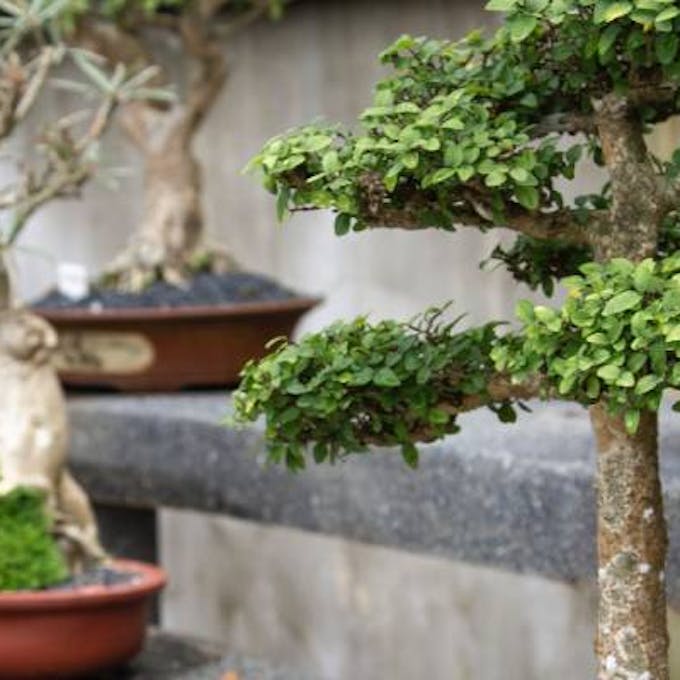
Exquisite bonsai and expert care: Zelkova, Carmona and Pinus halepensis
Discover the beauty and art of growing Zelkova, Carmona and Pinus halepensis bonsai. Learn the secrets of caring for these delicate trees in our detailed guide for collectors and enthusiasts.
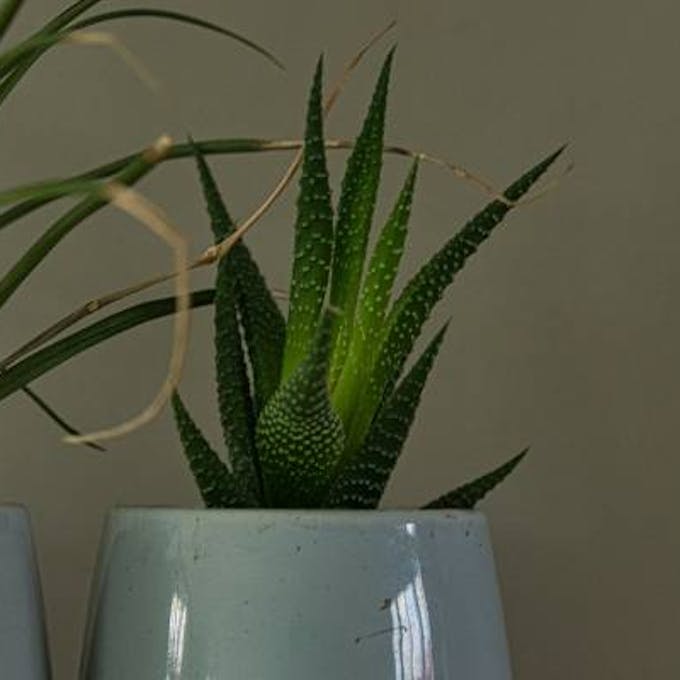
Small but mighty: small plants for all your spaces
One of the great ills of our generation is that we live in cramped, if not tiny spaces, especially in big cities. From studio flats to office cubicles. This has made us re-evaluate all our decorative and stylistic choices, as we can no longer afford a large zen fountain or a 6-seater modular sofa. But this doesn't mean you have to resign yourself to living in a grey, hyper-minimalist cell, because you can always decorate with small plants.
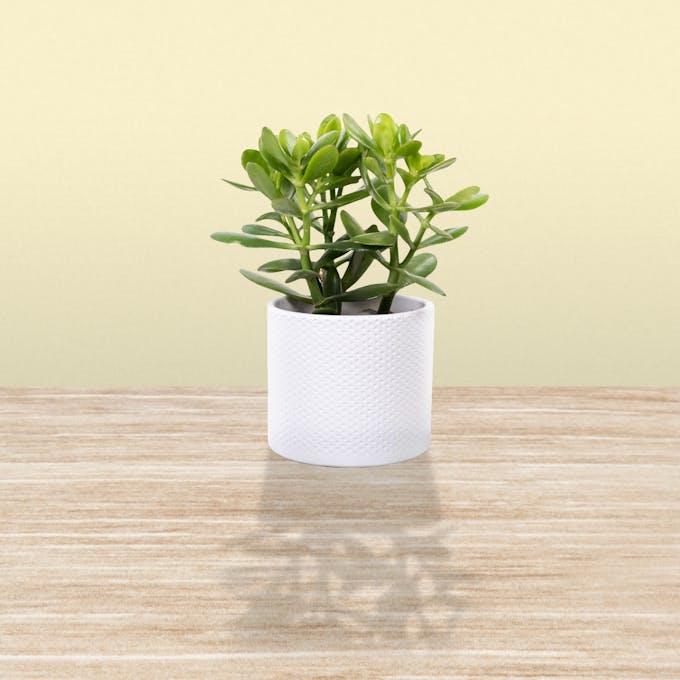
Cross your fingers and plant jade in the entryway: Which plants are good luck to have at home?
Some say that the whole world is made of the same energy, which can be manipulated to tip the balance in our favour (or not). Luck expresses that infinite possibility of experiencing positive or negative events.
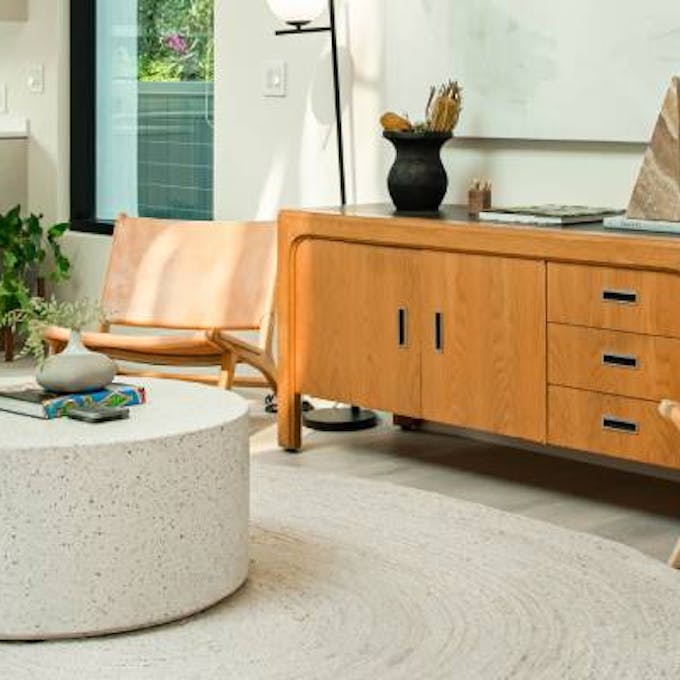
How to decorate your living room with plants
Incorporating natural materials, textures and colours found in the outside world into the home is what brings life and style to the place. A nod to the natural humanises rooms and fills them with colour. One simple way to bring the natural into the home is to use plants. Learn how to decorate your living room with plants by following these simple tips.

Step By Step Guide To Potting Your Houseplant
Knowing when it's time to repot your houseplant can be crucial for its health and growth. You should look for several signs that indicate your plant might be ready for a change.

10 Houseplant Trends for 2024 - Plants, styles and décor that will sweep through homes (includes eBook)
Increasingly, interior decoration is being infused with the freshness and vitality that plants bring. The search for benefits in style, wellbeing, and a relaxed atmosphere has fuelled a growing interest in plants, which is expanding through ever-evolving trends. Discover 10 trends for this year, with a free eBook!
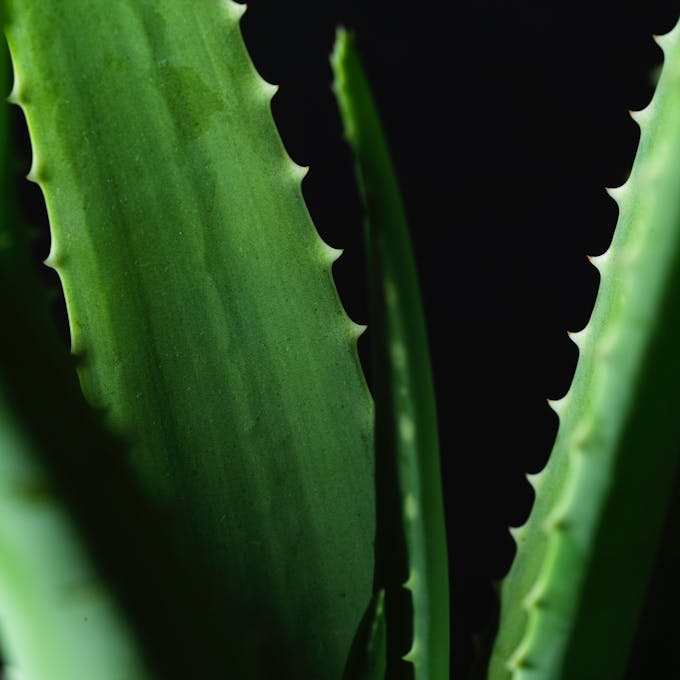
Aloe Vera Woes? Troubleshoot Your Indoor Garden
In this article, we will provide expert guidance and practical solutions to troubleshoot common issues that may arise when caring for your aloe vera.

The Green Mystery of Elegance: The Kentia Palm
The Kentia palm is the perfect choice for elegant decor. It adds a refined touch to your home or office with this timeless plant. Learn how to integrate and care for it.

How to Create a Japanese Aesthetic with Plants at Home
Japanese interior design is based on harmony with nature and the creation of functional and balanced spaces. With a few changes and the right plants, it is possible to bring the harmony of Japanese philosophy to any corner of the home.

NASA Study on Indoor Plants
Discover how certain plants can purify the air in your home according to a NASA study. Learn which are the most effective, how to care for them, and how they can enhance your wellbeing. 🌿✨

3 Easy-to-Care-for Plants to Buy in Winter
Discover three easy-to-care-for plants during the winter: spider plant, snake plant, and peace lily. These species not only add colour and freshness to your home but also purify the air and require little maintenance. Learn how to care for these plants and transform your space during the cold months.
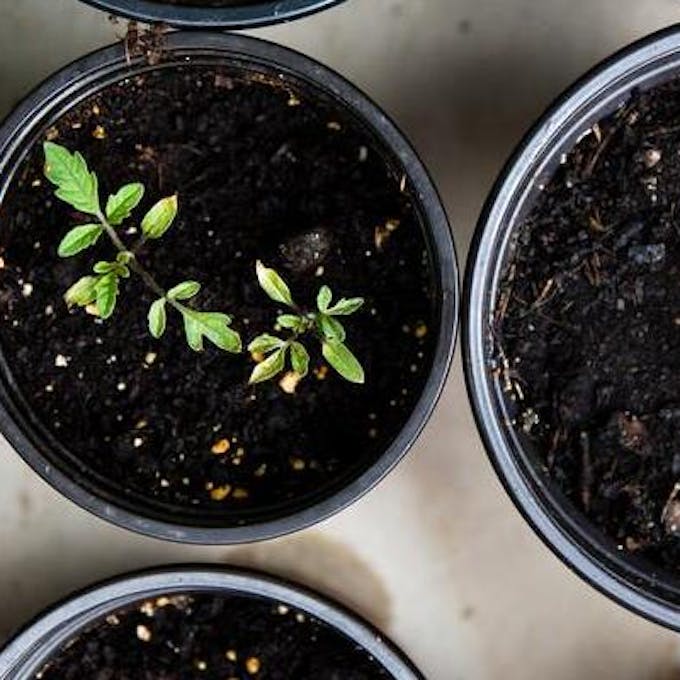
How do plants reproduce
Plants, as living beings, reproduce to perpetuate the species. However, the ability to multiply is not only necessary for the survival of the plant world. Animals and humans also benefit greatly from the abundance of oxygen we receive, thanks to this process!

Methylene Blue and its Use in Plant Care
Discover the potential uses of methylene blue in plant care. Learn about its benefits, precautions and how to apply it safely in gardening.

Plants to Give as Gifts: Discover Their Meaning
Discover the meaning behind the most popular plants to give as gifts and surprise your loved ones with a present full of symbolism and emotion. Learn how to care for them and find the perfect gift at Be.Green.

Easy Monstera Care Guide for New Plant Owners
Learn how to care for your Monstera with this easy guide! Perfect for beginners, discover tips on light, watering, humidity, and more to keep your plant thriving.

Tips for recovering an overwatered plant
While it is easier to rescue a plant due to underwatering, it is possible to recover an overwatered plant if you follow our advice.

What Humidity Do Houseplants Need?
One of the most confusing variables when it comes to caring for plants is humidity, because although we can feel it we can't see it, which makes it a bit difficult to understand and control; unlike...

The Peace Lily: A sophisticated and meaningful gift
The Peace Lily is a fascinating plant that has captivated many people throughout history. In this article, we will explore its history, cultural meanings, and how to care for it properly.

Indoor Olive Tree Care Guide
With the help of this little guide to indoor olive tree care, your little tree will be able to accompany you for decades to come.

Ficus robusta care guide
If you are looking for a little tree for the branch of the jungle you are building inside your flat, but you want one that is easy to look after (sufferer, my aunt would say), then you need a specimen...

Potted trees
If you have a space with plenty of light, such as a terrace or balcony and room for a good sized pot, then you have everything you need to start growing your tree. Shade, colour and even delicious...

Discover the Perfect Pots for Snake Plant
Selecting the right pot is crucial for the health and vibrancy of Snake plant, also known as Sansevieria

5 plants that bring love
Plants are real living beings, known for their many properties and, in particular, for the accentuation of different energies and emotions. On the occasion of this Valentine's Day, we are going to...

Trees that can be grown indoors
It may sound crazy, but there are several species of trees that can be safely and happily grown inside your home. A small tree is just what your spaces need: tall, elegant and with a beautiful...

Mold in plant soil, learn how to identify it
You love your plants, you look after them with care and attention. Everything is going perfectly well until one day you notice that there is a white fuzz on the substrate of one of your plants. It...

5 Trees with few roots
Creating a garden is a challenge that involves putting all our talents into practice. Not only does it require exquisite taste to be able to decide on the right and harmonious combination of plants...

Benefits of natural aromatherapy at home
Aromatherapy is an alternative therapy that harnesses the full power of certain plants. Although the word aromatherapy is almost always associated with treatments and actions intended to relax and...

Outdoor hanging plants
In decoration it is important to play with the height of objects to guide the eye through the space in a dynamic and fluid way.

Potted lemon tree care
One of my life dreams is to be able to go to my garden to get the ingredients for whatever I'm cooking. I've done pretty well with herbs, but I wanted to take it a step further: I needed a fruit tree....

Ivy care
Ivy has always struck me as an enchanting plant, there is something magical about those little leaves that climb relentlessly up walls and trellises if you let them. They are so elegant and beautiful...

Alocasia Cucullata Care Guide
Alocasias are a very popular type of plant. There is something very appealing about their large, shiny leaves, which evoke tropical warmth, lush jungle and bountiful nature. They are very hardy and...

Tips for transplanting newly purchased plants
Some say that as soon as the new plant arrives you have to transplant it, others say wait, others think it is better to leave them as they are. They don't agree, and that's because to some extent they...

The hardiest houseplants
These are the hardiest houseplants, which will allow you to regain your confidence and start your collection.

How to remove the fly from the substrate
If your plant is looking dull and is surrounded by a lot of flying bugs, it is quite possible that you are suffering from one of the most common and most pesky pests: the black, substrate or fungus...

Keep your orchids perky and bright
Few flowering houseplants are as beautiful as orchids, and few, in turn, have such a reputation for being difficult to grow. However, there are many varieties that are relatively easy to maintain....

Feng Shui and plant decoration for the office
Feng Shui literally means "wind-water" and is an ancient Chinese art that aims to use energy forces to improve the harmony of our environment. As such, it is possible to decorate a home or your...

how does the moon influence plants?
The relationship between what happens on our planet and its satellite has always been surrounded by an air of mysticism. In the past many societies gave special powers to the moon, but within these...

Easy and natural decoration for premises and offices
did you know that if you bring nature into your office, you will get the feeling that things are happening as planned? This psychological fact is closely associated with images of nature and a...

Tricks to accelerate plant growth
Caring for plants is a rewarding hobby that allows you to learn to respect nature's timing, acquire patience and enjoy caring for a living being, although let's be honest: there are times when we...

What to do with frozen plants
Whether it is because of global warming, because you forgot to save them for the cold season or because the temperatures dropped much lower than expected and damaged the outdoor plants, those plants...

Myths about plants
Almost everything has a few beliefs surrounding it. Folk wisdom, grandmother's tales or whatever you want to call them, many of these ideas are not even discussed but pass from mouth to mouth, get...

5 ways to introduce plants into your home
Plants are here to stay. More than a simple decoration, plants have become unique pieces that integrate organically into the space, becoming in many cases the main element, where all eyes converge.

The importance of a good work environment
It is undeniable that designing a workplace with positivity is essential for our professional success and also for the success of a company.

Monstera Adansonii Care Guide
While they are related and have similar care and characteristics, they should be recognised as unique individuals, with their own particularities and preferences. Don't worry, you'll learn everything...

Perfect plants for minimalist decoration
The big conflict many people have is that, while they are able to appreciate this serene beauty of simplicity, spaces with this kind of decoration can feel a little cold, artificial and not very...

What is the ideal temperature for plants?
Not all plants respond in the same way to temperatures, this depends on their origin and species, so we will explain in detail the importance of temperature for plants, how it affects their well-being...

Plant groups according to light requirements
Light is essential for plant growth and development. Most of us know that it is essential for photosynthesis, the process by which the plant processes its own food, allowing it to store glucose and...

Shade trees and little root
If you are looking for trees that improve the room temperature with their shade and with non-invasive roots, to protect buildings and pipes, then you are in luck because we will mention the most...

Types of bonsai trees and their care
If you are a bonsai enthusiast you will surely be dazzled by the variety and beauty of these miniature trees, which are able to reproduce all the characteristics of the tree in its natural size....

Incense, a fragrance for your well-being
You probably don't know all the beneficial effects that aromas can have on you. We invite you to find out why having incense at home can be the best way to take care of yourself, whether it is the...

Adam's rib, tips to always have it perfect
Although it is a plant that has fairly simple requirements, there are those who have not been very lucky and have seen it move on to a better existential plane or have it small and sad in a corner,...

Botanical incense
Botanical frankincense is one of those plants that has a simple appearance but is a must in any garden or plant collection, not only because it has a beautiful variegated colour but also because it...

Your urban garden at home is easy and accessible
Believe it or not, it is possible to grow herbs and even vegetables at home. Forget about complications, now having an urban crop is much easier and more accessible than ever.

Top calathea care tips in spring – summer
Calatheas are magnificent plants, because there are many varieties, so you can play with their shapes, sizes and colours to create beautiful compositions.

When and how to use fertilizers
Fertilisers, in short, provide a series of nutrients to the soil so that they can be absorbed by the plants and contribute to their development, growth and splendour.

Water stick care
The first time I moved house, my mother insisted on giving me a couple of plants, including one with a woody trunk and a plume of green and yellow leaves, beautiful, with a little red ribbon tied...

Everything you need to know about plant care
The best guide to plant care you will find on the internet. When choosing plants to fill your space, you should give yourself some time to research which ones

The ultimate guide to caring for your plants
The best plant care guide you will find on the internet. Taking care of your plants may seem complicated, but we have good news! By knowing the cycles and the

All the curiosities about plants you need to know
The best guide to plant curiosities you will find on the internet. I'm sure that you, like most people, find it easy to fall in love with plants. The great

Why you need plants in your life
Just as we need to sleep and eat, some greenery is essential for our well-being. Without going into complex theories, we could say that human beings tend to

When and how to use compost
Very few people are aware of the importance of applying fertiliser correctly and those who do not go beyond fertiliser altogether, apply it without taking into account the particular needs of the...

Outdoor plants that are resistant to cold and heat
Indoor plants are more or less easy to choose, because the environmental conditions indoors are quite stable. One of the biggest challenges when choosing outdoor plants is to find one that is adapted...

The guide to plant leaf care
The best guide to plant leaf care you will find on the internet. You know what? Leaves are the food factory of plants. That's why it's so important to take care

The guide to plant reproduction
The best guide to plant breeding you will find on the internet. Do you want to grow your own plants from scratch, or do you want to reproduce the ones you like

Difference between fertilizer and fertilizer
Plants are incredible living beings, as they are able to synthesise their food with only water and sunlight. This is why it is important to use fertilisers and composts. But which one to buy, are they...

Prayer Flower Care Guide
is your Prayer Flower resisting you? Don't worry, this Prayer Flower care guide outlines everything you need to know to become a responsible parent.

Difference between pot and planter
Online shopping is the norm, especially after the circumstances that forced us to stay at home for so long. Shopping online is convenient, practical and above all very easy.

How to create your green space in 5 easy steps
do you have a corner at home that you don't know how to decorate? Do you dream of having a corner where you can take dream photos for your social networks? Does your life lack colour? Well, the answer...

Euphorbia Care: Helpful Guide, Care & Tips
Among decorative plants, succulents have become increasingly popular in recent times. This is due to their exotic appearance and above all their extremely easy maintenance.

Powerful & Fragrant Trio: Guide to the Care and Uses of Sage, Rosemary and Thyme
Ornamental plants are fantastic, but I must confess that my favourites are those that are not only pretty, but also quietly contribute to the home.

Which plant best suits your personality?
I think everyone at some point in life has taken a personality test or sought help from astrology to understand themselves a little better. Believe it or not, there is an ideal plant for everyone and...

What to do to remove brown spots on plants?
Protect plants from strong breezes and frost. Avoid locating them where there are frequent draughts, such as near doors and opening windows.

Succulent Care: Helpful Guide, Care & Tips
The surface of our planet is characterised by the variety of its landscapes: from tropical rainforests to inhospitable deserts. It stands to reason that different conditions for the development of...

Better together: Plants that are happier in a group
I fully understand the visual impact of a giant, luscious monstera in the corner of the room, standing out dramatically amidst the furniture; but I am a fan of having several plants together, in small...

Aloe Vera: the miracle succulent
Grandmothers know: have you been burned? Aloe Vera, a cut on the finger? Aloe vera, for wrinkles? Aloe vera, bad luck? broken heart? Then aloe vera.

Begonia Maculata Care Guide
The begonia maculata is a magnificent diva that will steal all eyes. It has a beautiful dark green colour, decorated with silver or white dots, while the underside is a deep red

Why does the tip of my plant's leaves turn brown?
There are many causes that can cause this problem in plants, from pests to small errors in the care and environmental conditions of the plant. But don't despair, we will show you what the causes are,...

Design and decoration with plants
The simplest, most cost-effective and efficient way to give a place style and personality is to strategically place a few beautiful plants in suitable pots. Not only can it become more lush, but it...

Plants that can be grown in water
There are people who are never at home but dream of having beautiful plants anyway. While it is true that there are a few drought-tolerant species such as succulents, there are those who would prefer...

Top tips for calathea care in autumn – winter
For many, the end of summer is sad, as it marks the beginning of the coldest time of the year - for others, autumn is a real celebration with its cool weather and trees changing colour.

Because my plants are decaying
There are plants that are natural drama queens (yes, I'm looking at you dear Fitonia and Peace Lily), but there are others that don't have this habit of fainting on a daily basis and it's normal to...

How to care for indoor palm trees
Indoor palms are a favourite for adding a bit of life and colour to spaces such as offices and living rooms, especially as they are easy to care for and some species can tolerate poor lighting.

Do all plants produce seeds?
We have all at some point, whether motivated by curiosity or a school assignment, sprouted seeds, even beans. Not all plants follow this cycle to reproduce, because depending on their species they...

How do shade plants feed?
If you are wondering how shade plants are fed, then read on because we will explain the differences between the way plants are fed according to their lighting requirements.

Learn how and when to plant Kentia
The Kentia palm is one of those indoor favourites. It is so lush, even when small and undeveloped, that it looks beautiful and is very decorative.

Which plant grows the fastest?
If you want immediate rewards and happy plants, then you need to acquire one of these fast-growing specimen plants.

how are cacti and succulents grown?
Cacti and succulents are fantastic plants, as they practically take care of themselves. Growing cacti and succulents isn't complicated, but you can always dip into our arsenal of tips.

What time of day is best to water plants?
Watering your plants is an activity on which the life of your plants will literally depend. Do you know what time of day it is best to water your plants?

Why does my plant have brown spots?
Green, lush, shiny and beautiful leaves are the perfect indication of your plant's happiness. If you have managed to reproduce to a large extent the habitat from which the species originates or if you...

Plants that attract positive energy
According to Feng Shui, plants are living beings that are able to receive the chi (vital energy) of the house and transform it, harmonising the physical and emotional state. Although these beliefs...

Top plants for Valentine's Day
Valentine's Day has become the perfect excuse to share with your loved one. If you are looking to make a difference with a gift that expresses all your feelings in a natural and beautiful way, then...

Adam's Rib or Monstera Deliciosa: Care and varieties
If you are already the proud owner of a Monstera or want to become one, it is worth knowing its basic care and what other varieties you can acquire to add to your collection.

What houseplants are OK for cats?
Every family nowadays has a furry member in it. If you are one of those who love cats, we present you the indoor plants suitable for cats.

Corn Plant Care: Helpful Guide, Care & Tips
Maize is part of our lives not only as a regular ingredient in the kitchen, but also as a raw material. Given its importance and presence in our lives, today we will talk about the care of the maize...

What is the best time of day to water plants?
Watering plants is an activity on which, literally, the life of your plants depends. Do you know what time of day is best to water plants?

Homemade insecticides to eliminate the pest from your plants
Taking care of your plant, understanding its watering cycles, fertilising it and always being aware of its needs will help it to grow big, sturdy and happy; but there are things that can get out of...

Why are the leaves on my plant black?
If the leaves of your plant are black, you should know that there are several causes of this problem and the solution depends on them. Don't worry, you will learn how to diagnose and cure black leaves...

Which plants produce the most oxygen?
If you suffer from allergies or want to improve the quality of the air you breathe, then you need to get your hands on one of these oxygen-producing plants.

is it possible to have a plant near the heating?
With the arrival of winter, it is necessary to change several routines; from taking out the winter clothes to turning on the heating, but inside the house there is another detail that can affect the...

Kentia Palm: Basic Care Guide
Kentia palms are one of the most popular species for indoors, as they adapt very easily to lighting conditions, which is often one of the most demanding aspects of growing these plants.

Snake plant care: Useful guide, care and tips
is there a plant that has all these qualities and can be easily grown at home? The answer is yes! The sansevieria or snake plant.

Top 10 houseplants that will survive
If you're one of those who don't have much luck with plants, take a look at these 10 houseplants that will survive any challenge, even a forgetful owner.

Caring for indoor plants in winter: 6 basic tips
Watering is less frequent during cold periods This is because water takes longer to evaporate when temperatures are lower. As the water keeps the soil moist

do plants feel pain?
Plants are living beings, so it is normal to think that they can feel pain, but the answer to this concern is negative: plants do not feel pain, as they lack the nervous system and the brain to...

Why are the leaves on my plant brown?
If you see that the leaves of your plants are brown, dry and brittle, this can happen for several reasons. We will show you how to diagnose it and how to fix it.

Plants to naturally scent your home
One of my domestic goals is that as soon as I open the door of my flat, a delicious aroma comes out. The solution is somewhat obvious: to take advantage of the properties of certain aromatic plants to...

Top plants to purify the air in your environment
Believe it or not, there are several species that have this super power. Get to know the top plants to purify the air in your environment and the basic characteristics of their care.

How to tell if you're a plant addict
do you want to know if you are a plant addict? We can help you find out. I know you don't think you have a problem and that you can stop buying plants whenever

Green & Natural: How to Increase Humidity in Your Room
One of the great advantages of having houseplants is that they naturally and sustainably increase humidity levels.

Plants that absorb moisture
If you're the kind of person who lives in a space where you feel like you could be swimming in air, these moisture-absorbing plants may be just what you need.

Cactus Care Guide
We can group under the word cactus a variety of plants that have something in common: they store large quantities of water in their tissues, which allows them to adapt to very dry environments and...

Can artificial light help your plants grow?
The short answer is yes: artificial light can indeed help your plants grow, but not every type of light can serve this purpose.

Alocasia Amazonica Care Guide
The Amazonian alocasia is one of those plants that will steal all eyes, as it has a beautiful shape and colours that are impossible to ignore.

why are terrariums so cool?
A terrarium is a small miniature garden, which has been created inside a glass container. Small flats and lack of free time are the main reasons that prevent

Because some plants are not suitable for pets
Learning how and which plants you should keep away from your pets is essential to ensure their good health and avoid unnecessary scares.

Maidenhair fern care guide
The Adiantum Capillus-veneris, or Culantrillo fern, is one of those beautiful plants that looks so delicate and perfect that you will want to have it in your home. But as a good fern, it can have a...

Rest Like a Baby: Top 5 Plants for Better Sleep
Your bedroom should be your own vision of a relaxation spa. Not just because we spend a third of our lives in the bedroom, but because of the importance of restful sleep for the maintenance of...

Substrate types for each type of plant
The secret to keeping your plant happy and content is to give it just what it needs: water, light and a good substrate. The substrate is of vital importance for the growth of your plant, as it will be...

What plants to put on a terrace?
I love to walk around the city, looking up a little from time to time, because I like to discover terraces full of plants.

Jade Care Guide
Jade (Crassula Ovata) is a fantastic plant, not only because it has a very good habit, is very hardy and easy to propagate, but also because it has an excellent reputation.

Everything you need to know about light and your plants
For your plant to continue to grow lush and luxuriant, it only needs 2 things: water and light, lots of light.

Zamioculca Care Guide
If Zamioculca Zamiifolia were a person, it would be that popular individual that no one can explain how everyone likes, but as soon as you talk to it you realise that it is good-natured, relaxed and...

How to make homemade fertilizers
did you know that you can share your morning coffee with your plants? From time to time it is essential to add some fertiliser to the substrate of our plants, especially when they are in pots, to...

Pots: everything you need to know
Your plants' pots are their home. Inside the pot is the substrate, where they get water and nutrients to grow and develop, so they are not a trivial choice, as many factors that can contribute to (or...

Top pet-friendly plants
If you dream of having a small branch of the tropical jungle inside your home but the wildlife that inhabit your spaces have developed a taste for nibbling on botanical specimens, this can become a...

Living off the air: all about tillandsias
Tillandsias or air carnations, as they are also known, are a family of bromeliads and are a species of plants that literally live off the air. As they do not need soil, these plants are very popular...
Explore the world of plants and transform your space
Connecting with nature from home has never been easier or more rewarding. On our blog, you'll not only find detailed guides for caring for your plants but also inspiration to fill every corner of your home with life and freshness. Whether you're a beginner seeking basic advice to keep your first plant alive or a green enthusiast looking for new species, you’ll find everything you need here.
Each season brings newness to the botanical world, and we're here to keep you updated. From hardy plants ideal for those with a hectic schedule to exotic species that become a focal point, we explore the latest trends and tell you how to integrate them into your home. Did you know that air plants like tillandsias are taking over modern interiors? Or that alocasias are back as favourites for their tropical touch and dramatic appearance? Our goal is to help you discover these green gems and learn how to care for them so they thrive.
Additionally, decorating with plants is more than just a hobby: it's a way to transform your space, enhance your wellbeing, and reflect your style. We share creative ideas to make the most of every corner of your house, from living walls that become works of art to terrariums that add a touch of elegance to any surface. We'll also show you how to combine different pots, colours, and textures to create compositions that captivate.
If you’re looking for something practical, you’ll love our section on daily solutions. From how to choose the best light for your plants to ingenious ways to keep them hydrated while you're away on holiday, here are the tips you need. We also discuss how to integrate plants in small spaces or homes with pets, ensuring everyone coexists harmoniously.
In our blog, we believe that plants are not just decoration: they are an invitation to live more slowly, connect with nature, and enjoy the little pleasures. Join us on this green journey and discover how to fill your life with freshness, creativity, and wellbeing.